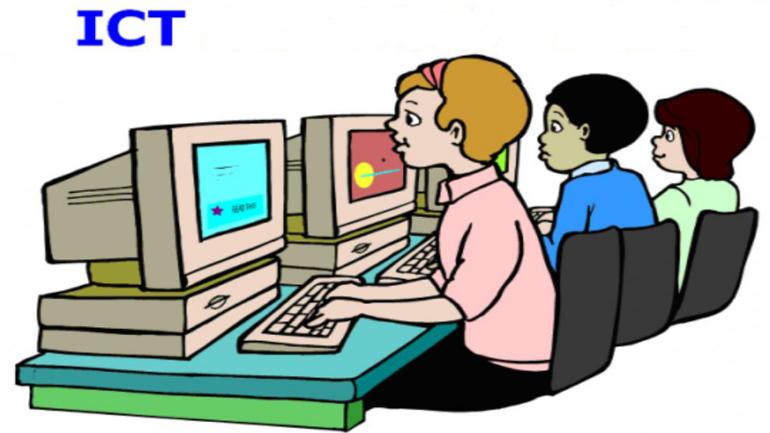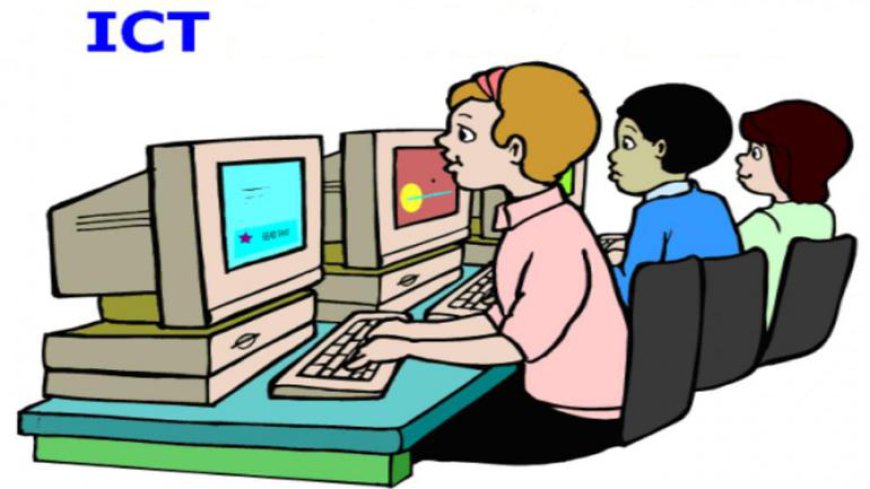In the digital age, Information and Communication Technology (ICT) has become an indispensable tool in revolutionizing the education landscape.
As traditional teaching methods make way for innovative approaches, the integration of ICT in
education has emerged as a powerful catalyst for change. This article explores the transformative impact of ICT in education through ten key points, shedding light on its benefits and potential.
Global Access to Knowledge:
ICT enables students to access a vast repository of information from around the world. Online resources, e-books, and educational platforms break down geographical barriers, ensuring that students have access to a diverse range of learning materials.
Interactive Learning:
With multimedia elements such as videos, simulations, and interactive software, ICT promotes experiential learning. Students can engage with complex concepts in a dynamic and interactive manner, fostering a deeper understanding of subjects.

Personalized Learning:
Adaptive learning platforms use ICT to tailor educational content to individual student needs. This personalized approach ensures that students can learn at their own pace, reinforcing concepts they find challenging while progressing quickly through familiar material.
Collaborative Learning:
ICT facilitates collaboration among students and educators. Virtual classrooms, discussion forums, and collaborative projects empower students to work together, fostering teamwork and communication skills essential for the modern workforce.
Real-world Applications:
Integrating ICT into education provides students with skills that are directly applicable to the real world. Exposure to tools and technologies used in various industries prepares students for the demands of the 21st-century job market.
Efficient Administration:
Administrative tasks within educational institutions are streamlined through ICT. From attendance tracking to grade management, automated systems reduce the burden on educators, allowing them to focus more on teaching and mentoring.
Assessment and Feedback:
ICT tools facilitate efficient assessment and instant feedback. Online quizzes, simulations, and automated grading systems provide educators with valuable insights into student performance, allowing for timely intervention and support.
Inclusive Education:
ICT promotes inclusivity by catering to diverse learning needs. Assistive technologies, multimedia content, and online resources make education more accessible to students with varying abilities and learning styles.
Professional Development:
Educators can enhance their skills and stay abreast of the latest pedagogical trends through online courses and professional development opportunities.
Information and Communications Technology empowers teachers to evolve alongside the evolving educational landscape.
Cost Efficiency:
ICT minimizes the need for traditional learning materials, such as textbooks, and reduces the costs associated with their production and distribution. This cost efficiency makes quality education more accessible to a broader demographic.
In conclusion, the integration of
ICT in education transcends conventional boundaries, ushering in a new era of learning. By harnessing the power of technology, education becomes not only more accessible and inclusive but also more engaging and relevant to the demands of our rapidly evolving world.
Follows Us for More Updates
Like Us on Facebook Page :
Click Here
Like Us on Instagram :
Click Here






























